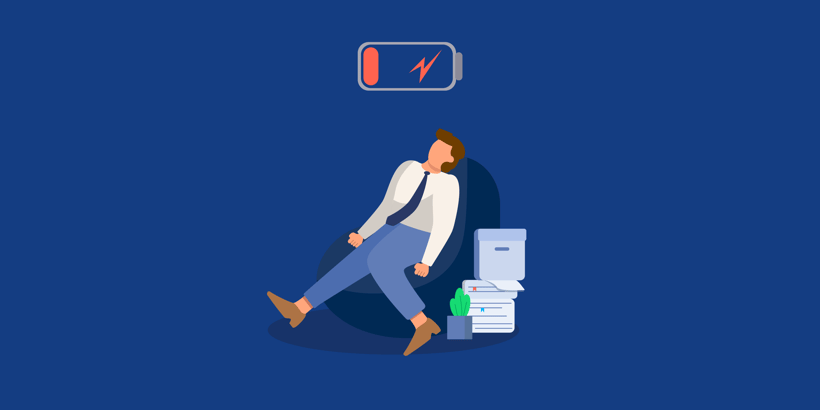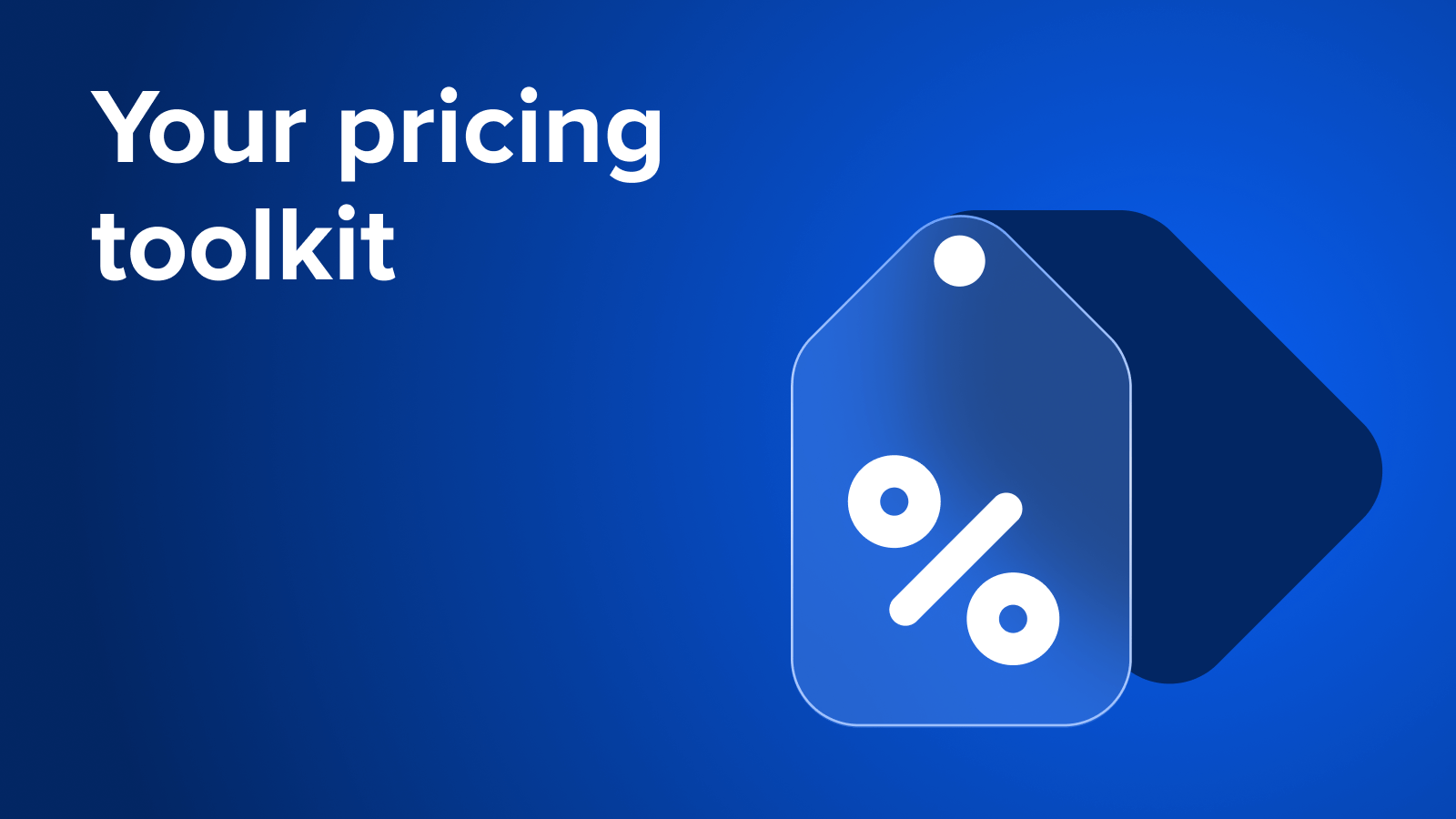How To Avoid Entrepreneur Burnout: Signs & Strategies

As a venue owner and operator, you’re no stranger to having to juggle a lot. If you’re feeling equally excited by the challenges you’ve overcome and what lies ahead and simultaneously tired, you’re not alone.
Business is more complicated these days, and many business owners have just come off the back of tirelessly navigating and adapting their operations through a global pandemic.
On top of that, you’re likely trying to be as present as possible for the people who rely on you, not wanting to miss important family moments and provide a supportive, reliable working environment for your team members.
All that to say, it’s not easy to be an entrepreneur in 2022.
However tempting it may be to push aside all that you have going on, it may be more worthwhile to invest your time and resources into managing your wellbeing. Why?
It’s critical to the longevity of your business. After all, you got into the attractions industry to bring joy and meaningful experiences to your guests, so what’s the use of building a hugely successful business if you’re not healthy enough to truly enjoy it?
This article will explain how to identify if you are suffering from burnout: its causes, its effects, and how you can find the right balance for you and your business.
What is entrepreneur burnout?
Entrepreneur burnout is usually defined as feeling physically and emotionally exhausted by your work and slowly losing your passion for it.
Burnout is typically caused by prolonged periods of stress or frustration, which could have come about for several reasons. It could be constant work stress, personal stressors, stress brought on by world events, etc. Most commonly, it’s a combination of a few of these things.
For an entrepreneur, burnout most commonly looks like the eventual loss of passion and drive for your business and entrepreneurship. This kind of burnout usually surfaces more slowly than burnout amongst employees.
An employee may start experiencing burnout and, after a little while, think, ‘I just don’t want to do this anymore’ and quit the next day – it is different for entrepreneurs. Entrepreneurs have higher stakes in the game, so burnout creeps up differently and can affect entrepreneurs unexpectedly.
Entrepreneur burnout statistics
How common is burnout?
In polls conducted by Opinium and the Center for Economic and Business Research, it was discovered that 92% of small business owners had experienced mental health problems over the past two years.
40% also said that working through their psychological problems took longer than any business financial recovery they’ve had to handle. This statistic alone clearly shows the importance of mental health and how hard it can be to restore once impacted.
How intensely is burnout felt?
Another study by Harvard Business Review found that all surveyed entrepreneurs admitted to having experienced burnout throughout their tenure. 25% reported feeling moderately burned out, while 3% said they felt intensely burned out.
If I’m burned out, does that mean I’ve made the wrong career choice?
Other areas in which these entrepreneurs were surveyed included: job fit (how much they felt suited to the role), harmonious passion (having a healthy level of passion for their business), obsessive passion (unhealthy levels of business passion), and destiny beliefs (the belief that their entrepreneurship was ‘meant to be’).
It found that most entrepreneurs felt that the job was the correct fit for them (4.26 on a 5-point scale), harmonious passion scored 3.90/5 overall, obsessive passion was lower at 2.58/5, and destiny beliefs came in at 2.79/5.
While all these numbers perhaps don’t come as a huge shock given the demanding nature of being an entrepreneur, they all suggest that there might be a better and healthier way forward for entrepreneurs.
Why do entrepreneurs burn out?
1. Obsessive vs. harmonious passion
It’s safe to say that we all get a little obsessed with the things we are passionate about. But not all passion is created equal. Here we’re breaking down the key differences between healthy and unhealthy passion behaviors, otherwise known as harmonious and obsessive passion.
Harmonious passion
As the name suggests, harmonious passion is a slightly more relaxed passion, allowing the entrepreneur to see beyond being an entrepreneur.
These entrepreneurs reported feeling like their role will enable them to enjoy memorable new experiences and see their best qualities reflected in them. They are also swamped but said that this mindset helps them maintain high levels of concentration, attention, and work absorption.
Obsessive passion
Obsessive passion, on the other hand, is characterized by:
- being unable to dissociate with work
- preferring to spend the majority of your time at workfeeling emotionally dependent on your job (to the extent that it affects
- your everyday emotions and resulting moods)
It will not come as a surprise then that the rates of burnout amongst harmoniously passionate entrepreneurs are much lower than amongst those who are obsessively passionate.
2. Making difficult decisions
Due to the role's nature, entrepreneurs make many tough business decisions.
Even at the best of times, entrepreneurs must decide what needs to change to ensure steady company growth.
These decisions may come in the form of overruling ideas from employees, dropping legacy products they built and are no longer performing, and perhaps worst of all - letting go of employees. Such decisions are also more challenging because they often affect more than just one person.
It can feel like it is all on their shoulders, and there isn’t much around regarding practical or moral support for entrepreneurs when making these decisions.
3. Pushing too hard, for too long
Pushing too hard for too long is often a byproduct of being a passionate business owner. We understand this, but as we know, too much of anything isn’t good for you.
Collectively, we all, as a human race, pushed hard these past few years. We pushed just to keep going, and it was brave, and it was hard. But after a while, too much can start to become damaging.
Many entrepreneurs struggled with keeping up with the fast-changing state of the world during the pandemic﹘keeping abreast of government regulations, dealing with rising insurance costs, and struggling to meet changing guest expectations were all very tough.
As a result, most entrepreneurs who were able to operate did not take any time off during the pandemic. They left sick leave unused and didn’t have the time to worry about their mental health – leading to mass short-term and long-term burnout.
Signs of entrepreneur burnout
Burnout is a hard one to identify – especially amongst entrepreneurs. Because one of the most common symptoms of burnout is the feeling of wanting to leave your job.
But if you’re the founder, it is almost hard-wired into you that you’d instead go down with the ship than abandon your teammates and swim to shore.
Entrepreneurs literally build businesses. They worked hard – invested time, energy, and money to attain their vision.
Seeing a dream like this realized is an incredible feeling – so incredible perhaps, that it can become easy to lose sight of themselves.
1. Feeling drained and uninspired
Many burned-out entrepreneurs reported feeling like getting through the work day required much effort. Some even said that work was breaking them down and affecting their zest for life – inside and outside the workplace.
2. Feelings of stress and anxiety
While stress and anxiety are a whole other topic in their own right, if you experience them both mostly daily at work – you may be experiencing burnout.
Be aware when you feel stress or anxiety come up in your day and ask yourself: is my workplace causing this? Or is it something else?
Explore what causes these feelings, which will lead you to discover which work/life changes may need to be made.
3. Not eating, exercising, or sleeping properly
Is your life being affected by your everyday work stress? If there is no medical reason for your lack of diet, exercise, or sleep, all signs may indicate burnout.
These are three of the most critical factors regarding mental and physical well-being. They are directly related and, if not sufficiently taken care of, can lead to mental and physical ailments – from anxiety and depression to heart disease and cancers.However, on the flip side, when you eat
healthily, exercise regularly, and get an adequate amount of shut-eye, there are endless health benefits. The best one is that you will feel better every day. Health is wealth!
How to deal with burning out as entrepreneurs
1. Allow yourself to pause
Take time off work. We know it sounds daunting but high periods of stress require deep rest to recover. Otherwise, the balance will be off.
Take a break from your phone, limit your emails and remind yourself that it will not be the end of the world if you don’t instantly reply to that SMS or email.
Trust your team and the business you have built. It will last because you made it to last. But there will be no point in running a successful business while you’re too burned out to enjoy it. You got into this to enjoy it.
2. Increase operational efficiency
Using software that does not work to optimize your operations' efficiency can also negatively impact the employees of a business..
Adopting software that is easy to use and packed with useful features, making operating feel like a breeze, can help businesses run more smoothly and take the stress off those running it.
It will vary from business to business, but some helpful software features include pre-built reports to help you better and more quickly understand what’s going on in your business, fast, integrated refunds to give you more time back to work on other valuable projects, and a powerful, easy to use interface so that you don't have to worry about new employees fumbling around at the point of sale and leaving a poor impression on your new and costly-to-acquire guests.
3. Exercise, eat healthily, and find your own way to recharge
Relaxing and recharging is not just about meditation or heading to a mindfulness retreat. Recharging is whatever feels good to you. A kid-free bath with a glass of wine? Or even just an hour to yourself, reading in your favorite corner of the house.
4. Adopt a ‘flexible mindset’
Something else to come out of the Harvard Business Review study referenced above is the idea of keeping a ‘flexible mindset’ around being an entrepreneur and all your role encompasses.
The researchers found that the entrepreneurs surveyed who adopted a 'fixed mindset' viewed their feelings of job fit as so rigid that it influenced their feelings of passion, consequently leading to burnout.
Meaning, the more the entrepreneur identified with their job and felt that it was the only job for them, the harder they worked to ensure that their situation never changed.
Having a fixed mindset is dangerous territory as it is all-consuming, and as such, these entrepreneurs are highly likely to suffer from burnout.
Conversely, adopting a ‘flexible mindset’ is much more productive and healthy. While having the same passion for their jobs, these entrepreneurs do not over-identify with them.
They are whole people outside of their careers. And while they enjoy their role very much, they view entrepreneurship with a higher level of flexibility and are better prepared to adapt and tackle any changes that may arise.
Sometimes we just need a little help
Burnout happens, and it happens to a lot of us - entrepreneurs or not. You'll be fine if you know how to spot it!
And if you do feel burned out at the moment, know that there are techniques and services available to help you get through it and that even the toughest periods pass.
If you feel that your current software system might be a part of the problem, consider moving to a platform that can give you some of your precious time and headspace back.
Switching to ROLLER, an all-in-one cloud-based platform with integrated payments, reporting and refunds, actionable guest insights, and a 24/7 support team, could be just what you need to boost sales and save yourself some time!
Reach out today to learn more about what ROLLER can do for you.
Related articles


What Every Venue Needs to Know About Birthday Parties (from a Parent and a Pro)

2025 Pulse Report Webinar: Operators Unpack the Guest Insights
Enhance your guest experience
Get free education, tips and inspiration to help you run a successful venue.